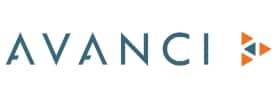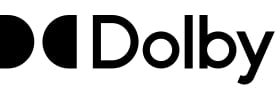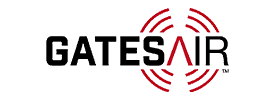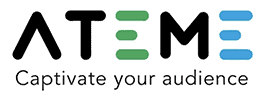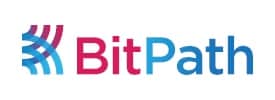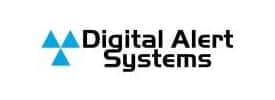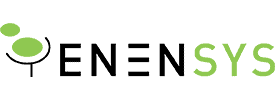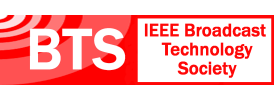- About
- Members
- Sponsors
- Subcommittees
- Technical Documents
- News
- Events
- Spotlight ATSC 3.0
- Contact Us
- Member Login
- Member Meetings
- Advanced Search
Search Site
Member Links
- About
- Members
- Sponsors
- Subcommittees
- Technical Documents
- News
- Events
- Spotlight ATSC 3.0
- Contact Us
- Member Login
- Member Meetings
- Advanced Search
SBE Charts Success with ATSC3 Specialist Certification
Posted on October 10, 2021 in ATSC News
By Jim Hermanson, CPBE, CBNT
Certification Chair, SBE Chapter 24 Madison, WI
jhermanson@sbe.org
The Society of Broadcast Engineers (SBE) introduced the ATSC3 Specialist Certification at the end of 2020, and the first exams were offered in February. Since its introduction, 13 people have added the ATSC3 designation to their list of SBE certifications.
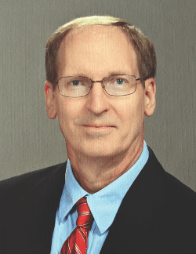
Two of the more recent additions to this group of people are Vicki W. Kipp, CSTE, ATSC3, CBNT, and Dennis Baldridge, CPBE, 8-VSB, ATSC3, CBNT, both with Chapter 24 Madison, WI. I spoke to both of them about their experience in preparing for and taking the SBE certification exam and being granted the new designation.
Dennis, who has been involved with the SBE educational efforts to present several Webinars by SBE courses, was part of the group the SBE National Certification Committee asked to participate in the ATSC3 beta testing program. “Not only did I have to take the test and answer the questions, but also provide input to any confusing questions, errors or omissions.”
The work to create the Specialist Certification level began in 2018. The SBE Certification Committee worked closely with key members from the Advanced Television Systems Committee (ATSC) for their input on suitable information to include in the exam. The Certification Committee also worked with several SBE members with direct experience installing ATSC 3.0 systems. From this, a set of questions was created, beta tests were conducted, the questions were reviewed and adjusted, and additional beta testing was held.
Dennis adds, “I must say it was the most difficult test I had ever taken from the SBE, and I found it very challenging. Or maybe I’m just getting old. I half expected to fail but did however pass.”
Vicki shared a similar sentiment. “For me, this exam was more challenging than other SBE exams. It was difficult.”
Exam Preparation
Vicki also offered some insight into her preparation for the exam. She notes, “It turns out that Dennis and I used some of the same approaches to studying.” She outlined the overall exam process. “When you take the exam, there are 50 open-book multiple-choice questions. During the open-book portion of the exam, you can use books, written materials and a computer to look things up online. After completing the multiple-choice portion, there is a closed-book essay question. The ATSC3 Specialist exam has one essay question.”
The SBE Certified Senior Radio Engineer and Certified Senior Television Engineer exams also include an essay question. For the Senior exams, applicants are provided with three essay questions, and they choose one to complete. The three questions are selected by the Certification Committee for each applicant based on the applicant’s experience. The Specialist Certification exams differ in that only one essay question is offered to the applicant.
For her previous certification exam preparation, Vicki used the SBE CertPreview sample test software. With the ATSC3 exam being so new, that was not an option. “This is the first time I’ve taken an [SBE] exam without studying SBE CertPreview first. CertPreview for ATSC3 is still being developed. I made some flashcards on Quizlet.com, but it was no substitute for SBE CertPreview.”
Vicki used other materials in her preparation. “I decided to study everything that SBE Certification Director Megan Clappe listed on the SBE’s list of ATSC3 suggested materials, and then some. This approach worked for me, but it might be overkill for some people.”
Vicki also used several SBE online resources. “The SBE’s six ATSC 3.0 Modules and the three ATSC 3.0 Networking Modules [all are Webinars by SBE] are highly relevant. Expert presenters include Madeleine and Charles Lo teach ATSC 3.0 modules 1-6. SBE President Wayne Pecena teaches the ATSC 3.0 Networking Modules 1-3.”
Vicki notes that most of the SBE ATSC 3.0 webinars have PowerPoints available for download. She printed those PowerPoints and took notes on them while watching the webinars.
“The SBE lists the Pearl NextGenTV Host Station Manual as a resource. I got a lot of use out of this manual. It’s worth noting that Dave Folsom at Pearl releases updated versions of this book from time to time. I also watched Pearl’s eight ATSC 3.0 webinars. The webinars progress in a different order than the manual, so I took standalone notes.”
Vicki also viewed the seven SBE@PBS TechCon 2019 webinars, which include real-life ATSC 3.0 applications from the 2018 Winter Olympics in Pyeongchang, South Korea. They are available on-demand through Webinars by SBE.
But Vicki didn’t stop there. “I skimmed through the ATSC 3.0 standards mentioned in the SBE’s suggested resources list. To hear ATSC 3.0 described from additional perspectives, I read the ATSC 3.0 Transition and Implementation Guide. It can be downloaded from the Meintel, Sgrignoli, and Wallace website. This guide has many expert contributors.”
Don’t put off SBE certification any longer. Whether you are ready to obtain the ATSC3 Specialist or any other level of SBE certification, get all the information and applications at sbe.org. Congratulations, Vicki and Dennis, on your certification achievement.
This Certification Update originally appeared in the August 2021 issue of The Signal, the Society of Broadcast Engineers bimonthly newsletter, and is reprinted with permission.
Important Certification Links:
SBE Certification
sbe.org/certification
SBE Specialist Certification
sbe.org/specialist
SBE ATSC3 Suggested References
sbe.org/specialist-reference
Webinars by SBE
sbe.org/webinars
ATSC 3.0 Resources
atsc.org/atsc-documents/type/3-0-standards
Pearl Station Resources
pearltv.com/station-resources
ATSC 3.0 Transition and Implementation Guide from MS&W
mswdtv.com/atsc-3-0
Posted in ATSC News
News Categories
News Archives
Subscribe
Subscribe to The Standard, our monthly newsletter. Learn More
Join ATSC
ATSC is a membership organization with both voting and observer categories. Voting members include corporations, nonprofit organizations, and government entities, and they participate actively in the work of ATSC. Observers are individuals or entities not eligible to be a voting member.
Subscribe to our Newsletter
Subscribe to The Standard, our monthly newsletter, to stay up-to-date with ATSC news and events around the world.
Site Links
Contact Us
Advanced Television Systems Committee, Inc.
1300 I Street NW, Suite 400E
Washington, DC 20005
Do you have questions about ATSC?
About ATSC
The Advanced Television Systems Committee, Inc., is an international, non-profit organization developing voluntary standards and recommended practices for digital terrestrial broadcasting. ATSC member organizations represent the broadcast, broadcast equipment, motion picture, consumer electronics, computer, cable, satellite, and semiconductor industries. ATSC also develops digital terrestrial broadcasting implementation strategies and supports educational activities on ATSC standards.
© 2025 ATSC


